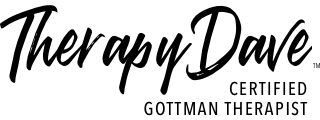You’re here because your relationship is at a turning point. Maybe you’re both feeling stuck, or one of you is considering calling it quits. Whatever brought you to this moment, you’re facing a big decision: Do you commit to working on your relationship, or do you need time to figure out if staying together is even the right choice?
Sometimes, couples find themselves at this crossroads after their very first therapy session. If that’s you, know that it’s not uncommon. The initial session can bring up a lot of emotions and questions, making you realize you’re not sure about your next steps. I want to help you and your partner think through and explore your options together, whether you’re just starting to consider therapy or you’ve already taken that first step. Here’s what you need to know.
Understanding Your Crossroads
Before diving into your options, it’s important to recognize the significance of this moment. Many couples find themselves here, often after years of:
- Communication breakdowns
- Unresolved conflicts
- Growing emotional distance
- Life changes or external stressors
Recognizing that you need help is a crucial first step. Now, let’s break down your options:
Option A: Gottman Therapy – Committing to Improve Your Relationship
Gottman Therapy, developed by Drs. John and Julie Gottman, is based on over 50 years of research on what makes relationships succeed or fail. It’s like going to the gym for your relationship. Here’s what you can expect:
What Gottman Therapy Involves:
- Learning to communicate better
- Managing conflicts without World War III breaking out in your living room
- Rebuilding friendship and intimacy (yes, it’s possible!)
- Creating shared goals and supporting each other’s dreams
The Gottman Method Process:
- Assessment: We’ll meet to discuss the primary issues in your relationship and come up with a structured treatment plan. You’ll take the clinical Gottman Relationship Assessment as part of this process to identify your relationship’s strengths and challenges.
- Treatment: Your therapist will guide you through skill training and exercises designed to improve specific aspects of your relationship, such as improving closeness and managing conflict in a healthy manner.
- Phasing Out: As you gain skills, sessions become less frequent until you’re ready to navigate on your own.
You’ll learn practical tools to handle arguments, express needs, and reconnect. It’s work, but many couples find it rewarding and even fun at times.
Option B: Discernment Counseling – Deciding Whether to Stay Together
Developed by Dr. Bill Doherty, Discernment Counseling is for couples where one or both of you are unsure about continuing the relationship. It’s particularly useful when you’re “on the brink” of divorce (often referred to as, “Should I stay or should I go?”).
What Discernment Counseling Helps With:
- Gaining clarity on what’s led to this crossroads
- Understanding your part in the problems (and your partner’s)
- Deciding if you have it in you to work on the relationship
- Making a confident decision about your future, together or apart
The Discernment Counseling Process:
My approach to Discernment Counseling is a structured, short-term process typically lasting four to five sessions. Here’s what you can expect:
- Assessment: Before beginning, you’ll complete a Gottman assessment. This provides a baseline understanding of your relationship dynamics and helps guide our discussions.
- Focused Sessions: Each session has a specific focus, from understanding the issues that brought you to this point, to exploring relationship dynamics, reflecting on possibilities, and working towards a decision.
- Safe Environment: We create a non-judgmental space where both partners can express their thoughts and feelings openly.
- Exploring Options: Together, we’ll examine various paths forward, including recommitting to the relationship, moving towards separation, or considering other alternatives.
- Decision-Making: The process culminates in making an informed decision about your relationship’s future, based on the insights gained throughout the counseling.
This process isn’t about fixing the relationship – it’s about deciding if you want to try fixing it or if it’s time to move on. The goal is to reach a thoughtful, well-informed decision about your future together.
It’s important to note that Discernment Counseling is different from traditional couples therapy. While couples therapy assumes both partners want to work on the relationship, Discernment Counseling is designed for couples who aren’t sure if that’s what they want.
Comparing Gottman Therapy and Discernment Counseling
| Aspect | Gottman Therapy | Discernment Counseling |
|---|---|---|
| Goal | Improve relationship | Decide on relationship future |
| Length | Several months | 1-5 sessions |
| Focus | Skill-building | Decision-making |
| Best for | Couples committed to staying together | Couples unsure about continuing |
Common Questions and Concerns
- “What if we disagree on which option to choose?”
It’s normal to be in different places. Discernment Counseling can actually be a good starting point to get on the same page. - “How long does each option take?”
Gottman Therapy typically lasts several months. Discernment Counseling is brief, usually 1-5 sessions. - “What if we try one and it doesn’t work?”
You’re not locked in. You can always reassess and change course if needed. - “Is choosing Discernment Counseling admitting defeat?”
Not at all. It’s a brave step to seek clarity when you’re unsure. - “We’ve tried therapy before. How is this different?”
Both approaches are structured and goal-oriented, with proven track records for helping couples.
Moving Forward: Your Next Steps
Whether you’ve already had your first therapy session or you’re just beginning to explore your options, here are some steps to help you move forward:
- Reflect individually: Take some time to think about what you want for your relationship’s future. Consider the insights you’ve gained from this article or your initial session.
- Have an honest conversation: Share your thoughts with your partner, listening without judgment. Discuss which approach – Gottman Therapy or Discernment Counseling – feels right for your situation.
- Review your current status:
- If you’ve already had a session with me: Think about what you learned and how it relates to the options discussed here. Prepare any questions or concerns you want to address in our next session.
- If you’re new to therapy: Consider which approach resonates more with your current needs and relationship goals.
- Reach out to your therapist:
- If you’ve already started: Contact me to schedule your next session. We’ll build on our previous work and decide on the best path forward together.
- If you’re new: Schedule an initial consultation to discuss your situation in detail and determine which approach is best for you.
- Prepare for your next session: Whether it’s a follow-up or your first time, come ready to discuss your thoughts on Gottman Therapy versus Discernment Counseling. Your input is crucial in shaping our work together.
Remember, there’s no “right” choice here – only what’s right for you as a couple right now. The important thing is taking a step, any step, rather than staying stuck.
If you’re still unsure, or if one of you wants Gottman Therapy while the other prefers Discernment Counseling, don’t worry. We can discuss these differences in our next session and find a path that addresses both of your needs.
Final Thoughts
Relationships are complex, and it’s okay to need help navigating challenging times. Whether you choose Gottman Therapy to strengthen your bond or Discernment Counseling to clarify your path forward, you’re taking a positive step.
You’ve already taken the hardest step by seeking help. Now, let’s figure out the best path forward for your unique situation. Remember, investing in your relationship – whether that means working to improve it or making a thoughtful decision about its future – is always a worthwhile endeavor.
Ready to take the next step? If you’ve already had a session with me, please reach out to continue our work together. We’ll pick up where we left off, using your insights to guide our next steps. If you’re new to therapy, feel free to contact me to schedule your initial consultation and start your journey towards clarity and relationship health. Your path forward starts here, and I’m here to support you every step of the way.

